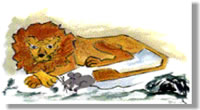Good news – the Omniglot forum is back.
I’m not sure how I managed it, but somehow I got it back.
Riyr ny yei y passan coloayrtys Frangish, hie mee dys y Thie Bee Blue Sky ayn Bangor as honnick mee Sharon King and the Never Never Cowboys, possan kiaull voish Nalbin. She arraneyder, screeudeyr arraneyn as gitardeyr ee Sharon, as va daa chaillin elley lhee – Vera van Heeringen, ar y gitar, mandalyn, fiddyl as kiaulleeaght cooidjagh, as Isobel Lohss ar y kishtey kiaullee as kiaulleeaght cooidjagh. Va ny arraneyn as y kiaull yindyssagh, as va ennaghtyn mie ayn.
Heno ar ôl y grŵp sgwrs Ffrangeg, es i i’r Tŷ Bwyta Blue Sky ym Mangor ac mi weles i Sharon King and the Never Never Cowboys, grŵp o’r Alban. Cantores, cyddansoddwraig a gitarydd ydy Sharon, ac roedd gynni hi dwy ennod eraill – Vera van Heeringen ar y gitâr, mandolin a ffidl a llais cyfeiliant, a Isobel Lohss ar yr acordion a llais cyfeilliant. Roedd y caneuon a’r gerddoriaeth yn wych, ac roedd naws da yn y lle.
A UK supermarket has started putting descriptions of wines in Georgie, Scouse and other regional varieties of English, according to this article. They believe that the normal descriptions are too confusing and complicated and don’t use everyday language.
In Scouse (spoken in Liverpool) it’s, “A totally boss bottle of Merlot which smells o’ blackberry, choccie, a brew and toffees. Juicy and complex like, this bevey is top wi most scran ‘specially me ma’s scouse. Tellin ye, this is deffo a bevey that will leave youz and youz mates made up over yez Sayers pastie.”
In Somerset it’s “Alright my luvver, eers one helluva Merlot. Be stinkin hummin a sivvies thar be bleddy ansome wi yaw croust or oggy. Purfect ta share wi yaw pardy as i’ aiin ta eavy. Mygar be a purdy wine! Churs!”
The title of this post is from a Scots version of the description, and in Geordie (spoken in Newcastle) a Merlot is described as “A canny Merlot ableeze wi succulent blackcurrants an blueberries. This Merlot has legs leik a thoroughbred, strong an forward, tha sucks the leif oot of yer palate. Its stowed bouquet is a delight fer yer nose an will leave yee clamming fer moor. This ain ne blash”
A spokeswoman for the supermarket said, “Local shopkeepers and suppliers came up with the dialect – it’s not come from central office or from a computer,” she insists. “We know that people don’t really talk like this – we just wanted to make wine buying accessible and fun.”

Emilio Gonzalez, who works as an intercultural mediator with immigrant children in Tenerife, emailed me to see if I could help to translate a short story into as many languages as possible.
Here’s the original Spanish version, and the English version:
Érase una vez un ratón que salió de su madriguera y se encontró un enorme león.
El león quería comérselo.
– Por favor, león no me comas. Puede que un día me necesites.
El león le respondió:
-¿Cómo quieres que te necesite, con lo pequeño que eres?
El león se apiadó al ver cuán pequeño era le ratón y lo soltó.
Un día, el ratón escuchó unos rugidos terribles.
Era el señor león.
Cuando llegó al lugar, encontró al león atrapado en una red.
– íYo te salvaré! – dijo el ratón.
¿Tú? Eres demasiado pequeño para tanto esfuerzo.
El ratón empezó a roer la cuerda de la red y el león pudo salvarse.
Desde aquella noche, los dos fueron amigos para siempre.
Once upon a time there was a little mouse who, coming out of his hole, met an enormous lion.
The lion wanted to eat him up.
“Please, Mr. Lion, don’t eat me. One day you might need me.”
The lion answered, “Why should I need someone as small as you?”
Seeing how tiny the mouse was, the lion took pity on him and set him free.
One day, the mouse heard an almight roar.
It was the lion.
When he got to the place, he found the lion trapped in a net.
“I’ll save you!” said the mouse.
“You?” You are too small for such a hard task.”
The mouse started to nibble at the rope of the net and the lion was saved.
From that day on they were friends forever.
The story has already been translated into Catalan, Basque, France, Portuguese, German, Arabic and Chinese, as well as English. Here’s a pdf with those translations.
Could you translate it into any other languages?
If you can help, please email Emilio at: animaccion[at]gmail[dot]com
As you might have noticed, the Omniglot forum is not working at the moment. I’m not sure what’s wrong with it – nothing has changed, as far as I can tell, and all the files are still there, but it’s just not appearing.
I’m trying to find a way to get it back, and if you have any suggestions how to do this, please let me know.
S’mie lhiam screeu, as ec y traa t’ayn ta mee screeu mychione çhengaghyn, troailtys as cultoor er son daa laaragh eggey, chammah as er son my laaragh eegey pene (Omniglot). Agh lesh yn vee shoh çheet cha vee mee screeu er son agh nane laaragh – by vie lesh shellooder yn laaragh elley dy heet ny yei troa noa (cre erbee ta shen çheet er). Myr shen bee towl lane vooar ayns my çheet-stiagh, agh foddym bio lesh.
Dw i’n mwynhau ysgrifennu, ac ar hyn o bryd dw i’n ysgrifennu am ieithoedd, teithio a dwylliant ar gyfer dwy wefan, yn ogystal â fy wefan fy hunan (Omniglot). Ond o’r mis nesaf bydda i’n ysgrifennu ar gyfer dim ond un wefan – mae perthynas y wefan arall eisiau mynd yn gyfeiriad arall (beth bynnag mae hynny yn golygu). Felly bydd twll eithaf mawr yn fy incwm, ond dw i’n medru ymdopi.
Here’s a recording in a mystery language.
Do you know or can you guess which language it’s in and where it’s spoken?

Gliniadur is a Welsh word for laptop computer. It combines (pen-)glin, knee, with iadur from cyfrifiadur, computer, and could be translated as “kneeputer”. It is similar to the Irish for laptop, ríomhaire glúine (knee computer).
Other Welsh words for laptop include cyfrifiadur côl (lap computer), sgrin-ar-lin (screen on the knees) and cyfrifiadur cludadwy (portable computer).
The suffix adur denotes a tool or thing and also appears in geiriadur (dictionary, “word tool”), gwniadur (thimble, “sewing tool”), teipiadur (typewriter, “type tool”), and termiadur (a dictionary of terminology).
This word came up last night at the French conversation group when we were discussing how to say laptop in French (ordinateur portable) – are there any other words for laptop in French?
Do any other languages have interesting words for laptop?
Purfle is a very handy word that means “to decorate the surface of a violin”.
I came across it today in an article about the completion and publication after 45 years of the Historical Thesaurus of the Oxford English Dictionary – the first historical thesaurus in the world in any language. The Thesaurus sorts words by date and meaning into more than 236,000 categories and subcategories, and the oldest words date back to about 700 AD.
Interesting discoveries include 265 ways to say ‘immediately’, multiple Anglo-Saxon words for diseases of the feet, as well as all sorts of words for stupid people, including medwis, modigleas, samwis, ungerad and stuntlic from the time of King Alfred (849-899); dumpish, dorbellical and grout-headed from Shakespeare’s time; and numskulled, born-muzzy, ram-headed and chuckleheaded from the late 18th / early 19th century.

Jea hoshee mee mp3 y yannoo jeh my chooid gishteenyn. Gooin lhiat kishteenyn? V’ad ymmydit jannoo recortysyn roish mp3 as CDyn car y keead vlein shoh chaie. Chionnee mee my chied kishteen ayns 1988 – albym lesh The Police – as ta ny smoo na keead aym nish. Myr shen bee tammylt beag roish ta jerrey er shoh.
Ddoe mi ddechreues i drawsnewid fy nghasetiau i mp3. Wyt ti’n cofio casetiau? Ro’n nhw yn eu defnyddio i wneud recordiadau cyn mp3 a CDiau yn ystod y ganrif diwethaf. Mi brynnais i fy ngasét cyntaf ym 1988 – albwm gan The Police – ac mae gen i mwy na gant erbyn hyn. Felly bydd sbel cyn i mi orffen hynny.